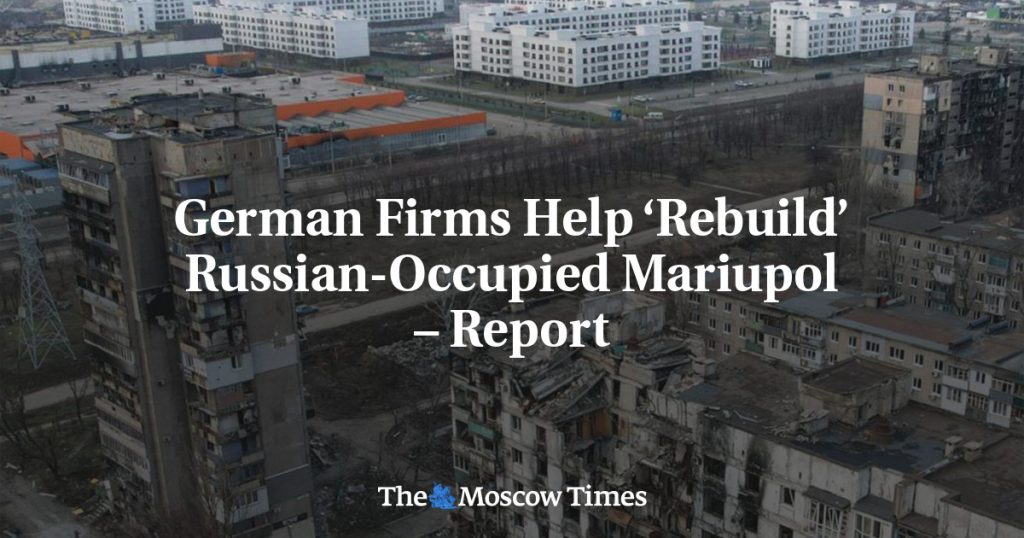Two German construction companies, Knauf and WKB Systems, have been involved in rebuilding Russian-occupied Mariupol, a Ukrainian city that was heavily damaged during the conflict. Monitor magazine and ARD television reported on their involvement, citing images from construction sites and activity reports demonstrating their presence in the city. Mariupol fell to Russian forces after a two-month siege, leaving the city in ruins and costing the lives of thousands.
Knauf, a manufacturer of plasterboard, and WKB Systems, which produces aerated concrete, have been providing materials for construction in Mariupol. The magazine also mentioned an “official distributor” promoting a housing project in Mariupol, built with Knauf products on behalf of the Russian Defense Ministry. WKB Systems, majority-owned by Russian businessman Viktor Budarin, has also been involved in supplying materials for construction in the city.
Despite their involvement in Mariupol, Knauf stated that they respect all sanctions against Russia, including those imposed by the EU, U.K., and the U.S. The company has not withdrawn from its 14 production sites in Russia, employing 4,000 people, out of a sense of responsibility to its employees. However, Germany’s foreign ministry has referred to Russia’s reconstruction plan for Mariupol as propaganda and warned companies to consider the implications of participating in such projects.
Russia has published a reconstruction plan for Mariupol, a city that was home to over 400,000 Ukrainians before the invasion. As German companies like Knauf and WKB Systems are involved in the rebuilding process, there is concern about whether their participation violates sanctions against Russia. Germany’s economy ministry has stated that authorities need to investigate whether the actions of these companies are in violation of sanctions and if their involvement in Mariupol is ethical given the circumstances surrounding the city’s occupation by Russian forces.
The decision of Knauf and WKB Systems to provide materials for construction in Mariupol has raised questions about ethical considerations and compliance with sanctions. While Knauf maintains that they are following all relevant sanctions, there are concerns about the reputation and implications of their involvement in a city that was seized by Russia. The involvement of German companies in the rebuilding process highlights the complex ethical and legal challenges posed by the conflict in Ukraine and the responsibility that companies have in ensuring their actions are in line with international norms and expectations.
As the situation in Mariupol continues to develop, the role of German companies in the reconstruction process remains a topic of concern and discussion. It is crucial for authorities to investigate the involvement of companies like Knauf and WKB Systems to determine if their actions are in compliance with sanctions against Russia. Additionally, the ethical implications of participating in projects in a city that was occupied by foreign forces raise important questions about the responsibilities that companies have in conflict zones and the transparency of their operations in such environments. Ultimately, the actions of German companies in Mariupol underscore the need for greater scrutiny and accountability in international business practices in conflict-affected regions.


